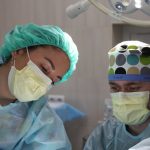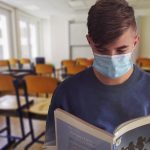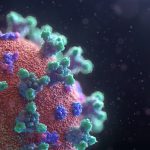Scientists find the cause and treatment of cytokine storm in COVID-19
Many COVID-19 cases are severe enough to warrant admission to the hospital for monitoring and treatment.
A substantial number of these patients die from the...
New vaccine combo shows promise in preventing COVID-19
In a recent study at the University of Sydney and Centenary Institute, researchers found that a vaccine candidate BCG:CoVac stimulated an immune response aimed...
Only 31% of Americans think return to school is safe
In a new study, researchers found that nearly two-thirds of Americans do not believe it is safe for K-12 students to return to school.
Only...
Scientists find persistent immune response to COVID-19 in recovered patients
In a new study, researchers have found that natural infection with COVID-19 produces a robust T cell response, including inducing T cell 'memory' to...
Many hospital workers infected with COVID-19 don’t show symptoms
In a new study, researchers examined 13 U.S. medical centers and found 6% of staff tested positive for prior infection with the new coronavirus,...
More than 25% of US people have depression during COVID-19 pandemic
In a new study, researchers found more than a quarter of American adults are experiencing COVID-related symptoms of depression.
Though 8.5% of adults were experiencing...
Face masks and coverings can fight COVID-19, new study shows
In a new study, researchers found cloth face coverings, even homemade masks made of the correct material, are effective in reducing the spread of...
Children with COVID-19 may have this rare inflammation disease
In a new study, researchers have mapped the immune response in children affected by a rare but life-threatening inflammatory syndrome associated with COVID-19.
The study...
New finding may help develop effective drugs against COVID-19
In a new study, researchers have identified a part of the COVID-19 virus that can be targeted by drugs that prevent the virus from...
More than 20% of children with COVID-19 have no symptoms
In a new study, researchers found a considerable proportion of children with confirmed COVID-19 remain asymptomatic.
The research was conducted by a team from Seoul...










